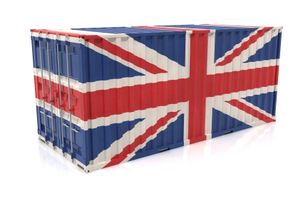Significance of International Trade to UK Business Organisations
 International trade is the exchange of capital, products and services across borders. Advantages of international trade include greater utilisation of resources, importing products that can not be produced locally, and increasing the variety of choice to consumers. However, international trade may be associated with disadvantages as well such as loss of local jobs and high level of dependency on foreign markets.
International trade is the exchange of capital, products and services across borders. Advantages of international trade include greater utilisation of resources, importing products that can not be produced locally, and increasing the variety of choice to consumers. However, international trade may be associated with disadvantages as well such as loss of local jobs and high level of dependency on foreign markets.
Significance of international trade to UK business organisations can be explained by referring to the concept of comparative advantage. According to the concept trade between two countries can be made in a mutually beneficial manner, if each country has comparative advantage to manufacture products to be traded.
One of the leading English economists of the 19th century David Ricardo uses the cases of England and Portugal producing cloth and wine as it is presented in Table 2. According to Table 2, England possesses relative advantage in producing cloth as it less labour hours are required. Portugal, on the other hand, has relative advantage in wine production, because only 80 hours are required to produce wine as compared to 90 hours to produce cloth.
|
|
Cloth |
Wine |
Ratio of price of wine to the price of cloth |
Ratio of price of cloth to the price of wine |
|
England |
100 |
120 |
1.20 |
0.83 |
|
Portugal |
90 |
80 |
0.88 |
1.12 |
Illustration of the concept of comparative advantage
Source: Hunt and Lautzenheizer (2011)
In other words, England can produce each unit of cloth for lower prices compared to wine, while for Portugal it is cheaper to produce each unit of wine than producing each unit of cloth.
Accordingly, both England and Portugal can consumer maximum amounts of cloth and wine if they focus on producing products within their relative advantage, and engage in international trade.
Impact of international trade to UK businesses can be illustrated by using the case studies of Martin Lishman and Aquaco. Martin Lishman – UK based manufacturer and distributor of specialist equipment for the agricultural, environmental and building industries generates substantial parts of its revenues from international sales exporting its products to more than 20 countries gloabally.
Similarly, Aquaco – grey water recycling and rainwater harvesting company based in Kent, UK sales its products and services to 14 countries and international sales amounts to about 35% of its total revenues. These case studies clearly illustrate the benefits of international trade to local businesses in the UK.
References
Hunt, E.K. & Lautzenheiser, M. (2011) “History of Economic Thought: A Critical Perspective” M.E. Sharpe
